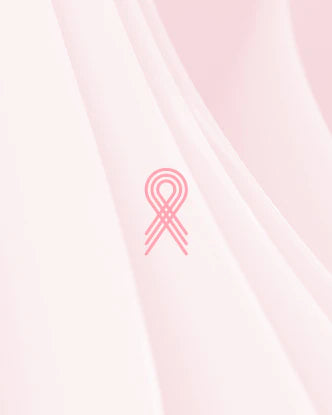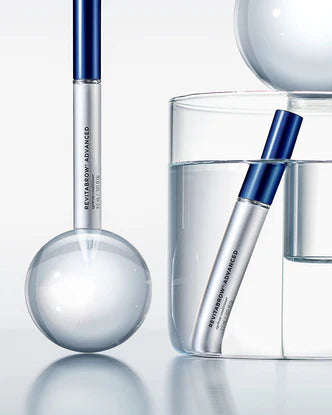
How did you get started with Pinc & Steel?
“I began my work as a physiotherapist in this field after seeing first-hand the physical and emotional toll cancer had on the people affected and was utterly shocked at the lack of support they received. This was in complete contrast to my work as a Musculosketetal physiotherapist working with top athletes.
The unfairness of the disease coupled with harsh treatment side effects and a gaping hole in the quality of care these patents received, were the driving factors to oncology rehabilitation quickly becoming my passion.”
What was your biggest struggle along the way?
“My biggest challenge has been trying to reduce the enormous discrepancy between the incidence of physical impairments and provision of funded medical rehabilitation services for people affected by cancer. There has been a truly humongous investment in cancer research to diagnose and treat the disease worldwide which has resulted in improvements in survival outcomes. As the treatments are helping people live longer (which is a very good thing), so too does the number of people living with persistent and disabling side effects. For many, these side effects present challenges that seriously compromise returning to a productive life. The fact is, cancer isn’t something you just bounce back from; it takes on-going rehabilitation.
And this rehabilitation is incredibly important, especially in getting people moving again. Research shows that exercise increases the chances of staying cancer free by nearly a half, as well as a number of other vital physical and mental health benefits.
We have a growing number of people registering for our support who need financial assistance to be able to afford essential rehab services. I think many people expect funding is available for cancer rehabilitation from DHBs or ACC but that’s not the case. It seems crazy that in this country ACC funds physiotherapy for an injured rugby player, but not a cancer survivor.
I started the PINC & STEEL Cancer Rehabilitation Foundation in New Zealand in 2006 to help support people needing financial assistance to access rehabilitation and it is an ongoing struggle to providing funding support to everyone who needs this support."
And what has been your greatest achievement with Pinc & Steel?
"For me seeing the impact of our work on individuals affected by cancer and those close to them is my greatest achievement. Receiving a New Zealand Order of Merit for services to people with cancer at Government House in front of my two sons, parents and partner was an amazing experience I’ll never forget."
What are the different programmes that Pinc & Steel offers?
"The PINC Program is focused on helping females affected by any type of cancer at any stage of their treatment or recovery. It involves individualised cancer rehab sessions with a certified cancer rehab specialist physio. This one on one service is vital to address the wide and highly varied range of post treatment concerns that cancer clients may present with. The STEEL Program is the male equivalent and focuses on helping men young and old with any type of cancer through individualised rehab sessions. There is no set number of treatment sessions in both these programs as the focus is on helping people achieve the goals that are important to them.
We also run small group classes as a progression to the individualised Physio rehab sessions. There are two options available: NEXT STEPS, a blend of pilates, yoga and cardio fitness training , and PaddleOn, a paddle boarding fitness program."
What’s the costs involved for one of your programmes and how much of that is covered through fundraising/funding?
"The cost of our PINC and STEEL Program sessions is the same as a standard Physiotherapy session. With funding the cost reduces to a $10 surcharge.
Our Next Steps Program is fully funded for 10 sessions.
The PaddleOn Program is an 8-session funded Program with a $5 surcharge per session. There is no extra costs for the Paddle board equipment hire."
How many physios do you have across the country?
"We have just over 100 certified Physiotherapists in New Zealand currently working in small regions and the major cities from Kaitaia to Invercargill."
And the world?
"We have over 1000 certified Physiotherapists now working in 18 countries."
What is your best piece of advice you can offer for Breast Cancer Awareness month?
"Early detection and medical treatment may save lives, but cancer rehab gives people their lives back.
Every single person diagnosed with cancer should have rehabilitation support. No one should be left to fend for themselves during or after cancer treatment.
Cancer rehabilitation is not focussed on the disease; the focus is on the individual and what is important to them. It is effective alongside cancer treatment, it is effective after treatment is completed, and it is effective for people with advanced disease."
And what is your advice for someone supporting a loved one with cancer?
"After 15 years working in the oncology rehab field and supporting friends affected by cancer, I’ve learnt a few things about getting knocked down and getting back up again and the importance of friendship. Here are some thoughts and suggestions for people who care about someone facing this disease.
- Many studies have found that people affected by cancer with strong emotional support tend to better adjust to the changes cancer brings to their lives, have a more positive outlook, and often report a better quality of life. Research has shown that people with cancer need support from friends. You can make a big difference in the life of someone with cancer.
- Every person’s experience with cancer is unique just like every human soul is unique. Yes—it is true that your Aunty may have had the same tumour—and responded totally differently. I understand the desire to empathise but remember - everyone’s experience with cancer is unique.
- Cancer can be very isolating. Try to spend time with your friend – you may be a welcome distraction and help them feel like they did before cancer became a major focus of their life. Always call before you visit. Be understanding if your friend can’t see you at that time.
- Don’t overstay your welcome. For most people going through cancer treatment is very energy sapping. There is a bunch of stuff we can’t see happening in the body and the soul and it is exhausting. Come for a few minutes—I use 20 minutes as a good gage—and then depart.
- Make sure your friend has some rehabilitation support with a certified cancer rehab Physiotherapist. Offer to help find the Oncology Physio for them and drive them to their appointment. Undergoing cancer treatment is hard work and offering to help in this way can help your friend look forward and focus on getting well again.
- Above all - people need friends throughout their treatment and beyond. If the treatment has stopped and the cancer has gone, this doesn’t mean they no longer need your support and love. Keep checking in."







